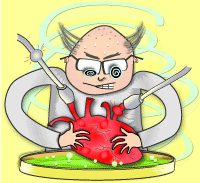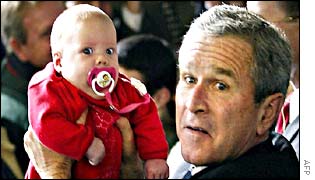The council has reached a decision, and there will be no restrictions for stem cell research in FP7. In the end, the decision was reached after a vote. Luckily this issue is decided with a qualified majority, as some countries supported the restricting clause until the end. Italy and Germany withdrew their support to the restrictions after they were assured that research will be conducted under strict ethical guidelines and supervision.
The sums that will be used in stem cell research are ridiculously small, though. Only 8 million euros (only a fraction of the amount allocated to medical research) is allocated to this field in the programme, and so the FP7 funding will not have much effect to the power balance on the field - the decision still might, as it is an indicator that Europe is committed to furthering science, and while it is very strict in making sure the research protocols meet ethical guidelines among other quality criteria, it is not imposing impossible restrictions based on narrow-minded moral judgements.
Monday, July 24, 2006
Well done, council
Stem cells
 When he's not making a fool of himself, GWB is actually running the only superpower of the world, which is also the world's biggest contributor to scientific research. And in doing his job, he has recently vetoed a bill that was already approved by the Senate and would have made federal funds available for a wider spectrum of stem cell research. In 2001, Bush backed a limited funding package for research, saying that the research should proceed with careful steps. Now he has decided that that is as far as he is willing to go, thus giving in to the ones among his supporters who loudly ask for a total ban.
When he's not making a fool of himself, GWB is actually running the only superpower of the world, which is also the world's biggest contributor to scientific research. And in doing his job, he has recently vetoed a bill that was already approved by the Senate and would have made federal funds available for a wider spectrum of stem cell research. In 2001, Bush backed a limited funding package for research, saying that the research should proceed with careful steps. Now he has decided that that is as far as he is willing to go, thus giving in to the ones among his supporters who loudly ask for a total ban.
The "debate" is purely a religious one, and has nothing to do with science as such. The credibility of stem cell research received a blow when some of the work by Hwang Woo-suk was shown to be fake, but for the scientific community this only tells that we are not as far as we thought we were in using this technology; not that the field as such couldn't eventually deliver those advances.
Progress is slow and there are still many obstacles before we can say that we can control stem cells and use them for therapeutic purposes. But it's progressing and the potential returns are huge: diabetes, Parkinson's, spinal injuries, brain damage... diseases and conditions that millions and millions of people suffer from, could possibly be cured or at least alleviated by stem cell therapies. As a diabetic myself, I'd gladly see the day when I no longer need to take about a hundred bloodtests each month and give the same amount of injections of insulin - day after day, while facing the risk of long-term effects of run-amok blood sugar: blindness, leg amputation, heart and kidney failure etc. Stem cells could be converted into insulin-producing beta-cells and implanted back to my pancreas or liver, and the implanted cells could take over the job from the ones that were lost as a result of some autoimmune over-reacting by my white cells.
Now, some of the right-wing conservative governments in Europe are following in GWB's footsteps, by insisting that European funds should not be used for stem cell research. This comes as the EU prepares the new, 7th framework funding programme for research. This programme would give almost 55 billion euros for research during 2007-2011. As stem cell research is complicated, expensive and requires collaboration and large units, FP7 can be said to be tailor-made for such fields of research.
Germany, Austria, Poland, Slovakia, Slovenia, Lithuania, Luxembourg and Malta are the ones opposing. Apart from Germany they are small and have very little influence (politically or scientifically, for that matter), and they are currently only one vote above the blocking minority in the council. Considering that in most countries the conservative governments hold their office with a slender majority, and in those governments and parties stem cell research is opposed by only some of the members, it would be unfair and wrong to block funding because this minority doesn't like some of it.
What is their problem with stem cells? Well, one of the sources of human stem cell lines that are used is to take them from human embryos, usually those that are a "sideproduct" of fertility treatment, artificial insemination, that is. As only one fertilized egg that has started to develope is planted to the prospective mother's womb, the rest are destroyed. Or, they could be used to harvest stem cells for research purposes. We are talking about embryoes that are only a few days old, not growing babies on petri dishes and then harvesting their organs. Still, the opposition says, humans are humans from the word go, from the moment of insemination and thus using these embryos is wrong. They are also afraid that the technology will be used for cloning humans, and some are even of the opinion that deriving new stem cells from the existing lines is too close to cloning already and should be stopped.
This view, held by many on the religious right, including some babtists, evangelical christians and catholics, is based on a doctrine that was originally formed in need to find motivations to ban abortion. Rather than trying to determine when in gestation the embryo becomes a baby, or starts to possess a soul, they said it happens already at conception. Thus was two birds with one stone, as they could ban all contraception as well. It is not based on any scientific evidence of human development, it's basis is in the power politics of societal control that these churches wield. In the grand scheme of things, I'd have thought that the rights of, and compassion for those who suffer from these illnesses would be greater than the principled support for the human rights of what is essentially just a piece of waste tissue. Pro life my ***.
Well, I'm sure FP7 will go through without restrictions. I'm sure one of the small countries will back down, and then the coalition will fall. With so much discussion about the competitiveness of Europe and how it's future success lies in its innovation sector and research, it would be weird if it would tie its hands based on some random religious arguments. As the US is blocking it's progress by the Bush-imposed limitations and Asian research is still recovering from the Woo-suk tragedy, this would be a golden moment to make an investment to the future and allow the European research facilities to take world lead in this sector. There are frustrated scientists facing career dead ends in US and Asia, who could be attracted to Europe by providing a more friendly environment to research. It's time to take steps forward, not back.
Stephen Hawking commented on the issue in today's Independent. In an uncharacteristically strong statement he attacks Bush and the leaders of the 8 states and says that using embryonic stem cells is morally equivalent to using the heart of a victim of road accident as a transplant. Well said, I hope his opinion (which can be seen just as personally motivated as mine, as he suffers from a motor neuron disease that could potentially be treated with stem cells) will be weighty enough to break the "reactionary" coalition.
(Pic: Uni of Utah)
Friday, July 21, 2006
Back to "work"
 Yep, I'm back in the lovely Cambridge. I thought the plane had by mistake landed in Madrid, as there was this daze everywhere, the kind of wafty thin mist you get after a day of scorching heat, and all the batches of grass that used to be green were yellow.
Yep, I'm back in the lovely Cambridge. I thought the plane had by mistake landed in Madrid, as there was this daze everywhere, the kind of wafty thin mist you get after a day of scorching heat, and all the batches of grass that used to be green were yellow.
The heat hit us in the face as we exited the plane - it was nine o'clock in the evening but it was still 28 degrees. At college, all the lawns have burnt. The bedders had closed my window so my room was almost like a sauna. I kept the curtains drawn all morning to stop the sun from shining right in. Actually, to be honest, there was no such conscious decision. I have the flu and so I stayed in bed until late, and even after I got up I didn't feel like doing any heavy household work like moving curtains.
In any salaried job, being healthy during your holiday and getting ill as you would need to go back to work would be a great thing. A few days on a sickie would extend your holiday and in case you'd spent yours abroad (or at home), they'd help you slowly adapt to the climate (or, in the absence of one, the current weather) and the surroundings before having to start working for real. But, for me this means that I will miss one of the conferences I was supposed to attend this summer. Four hours in a train tomorrow, when the temperatures are expected to stay as high as they are now, no thank you. Giving a presentation while coughing my lungs out and having to blow my nose every 30 seconds, no thank you. Writing the presentation today when feeling like shi'ite (in Lebanon) no thank you.
So, I made a trip to the grocery store and stocked up on soft drinks, tea and juices (need the liquid) and ice cream (need to cool down). And also some food even though I don't feel hungry at all. I had many things I wanted to write about but I'll leave them for later. I think I hear the CSI DVD calling. And those raspberries I bought when autopiloting through the aisles of Sainsbury's. Mmm...
(Pic: Zina Saunders)
Tuesday, July 11, 2006
Holiday!
Finally, I'm off to Finland! Nothing's done, everything is unfinished, library books aren't renewed, apartment rental things still in shambles, but I just don't care, since I really really need this week off. No blog entries, no cell phone, no email. I hope.
See you in a week!
Monday, July 10, 2006
Sleep for oil
 I'm so glad my holiday starts tomorrow. A couple of more days and I'd be blowing things up. Not just fuses, bigger things. Like diggers. Also good, that I only have a few nights left in this room before I move out, as the construction site has now really overstayed its welcome and expended all my patience.
I'm so glad my holiday starts tomorrow. A couple of more days and I'd be blowing things up. Not just fuses, bigger things. Like diggers. Also good, that I only have a few nights left in this room before I move out, as the construction site has now really overstayed its welcome and expended all my patience.
The building is almost finished, they are mainly doing work indoors. But as they dug a deep hole for the building, they are now landscaping the surroundings. With a crawler digger that was last oiled before it left the factory in the 1980's. Imagine a dry, rusty bicycle chain and the noise it makes. Then multiply it by a million. Add screeches like someone were running their nails over a blackboard. You get my 8 am daily wake-up call.
Seriously, noise pollution is serious and if sustained, it can flip you. I don't want to refer to yesterday's events in Berlin even though that's sort of a case in point as well, but living beside a building site has been a nightmare. I have been tolerant, thinking that they need to do these things to get the building up, but there are a couple of things I just don't understand. Why do you have to start the day with maximum use of power tools and noisy equipment? I know they think they are already making concessions by postponing the start of work until 8.00, but surely you could phase things in terms of noise a bit better. The racket they make from 8 to 9 is just unbearable. At around 9.30 things get better, because they start their coffee breaks. I swear, these guys take more and longer coffee breaks than even grad students do. And after the first coffee, things get more quiet. I guess they just need to wake themselves up with some chainsawing or pneumatic drilling before they can get to building things.
Also, it's the unnecessary noise I hate. Like this digger, for instance. It's not the first digger here, the place was crawling with them when they started digging the hole for the building. But they were never that loud, because they were properly maintained. And the whole thing is exacerbated by the debile look on the driver's face when he is crawling that digger around. I must be honest, he doesn't look like the sharpest tool in the toolbox. Or someone who would care to maintain equipment, if he's capable of doing it at all.
First I was thinking of going and bringing the guy a can of oil so he could de-noise his digger. Now I'm thinking more along the lines of delivering the oil, nah, gasoline in the form of a Molotov cocktail.
Je ne comprend pas
 Pourquoi, Zizou, pourquoi??? What an earth could he have said to you?
Pourquoi, Zizou, pourquoi??? What an earth could he have said to you?
Football makes you so irrational. So irrational, that I'm still convinced that it was all Materazzi's fault. The greatest player ever, world cup final, his last ever football match. Wh... I don't even know what to ask!!
Zizou is magical. When he holds the ball, time slows down. Sure, C. Ronaldo or Ronaldinho are agile and have quick feet, Rooney is strong like a bull, but Figo, Zidane, and perhaps even the great Finn Jari Litmanen all possess the greatest skill: they can freeze time. They never hurry with the ball, and when they take their time, they calm everyone down. No matter how hecticly the game flows, once they set their feet to the ball, all of a sudden it all goes to slow motion - you can see how they control not only the ball, not only their own game, but everything on the field. And then, SNAP!, they have made their decision, worked their magic, the ball has parted their feet and with the flick of the ankle, time fast forwards as if to catch up the time that was lost. And that means the defence will be late. The goalie is rooted to his feet. And the Greatest have scored, or given the perfect, bespoke pass.
Like Figo yesterday with his perfect cross. It feels superficial and just plain stupid to say it, in this world of hype and empty superlatives, but it is the only way to accurately describe that pass: Absolutely Perfect. And Litmanen's goals, passes, presence. Class. It looks smart, thought out, purposeful.
I'm useless in remembering dates, and I never remember who played who which year and which tournament and which game etc. But I remember several magical goals by Zidane, and to me he always epitomised class on the pitch. A cut above anyone else. And now I don't understand. How can all that purpose, class, patience, skill, leadership and presence vanish like that? For those 5 black seconds in Berlin, Zidane didn't just freeze time, he deleted it.
Ce n'est qu'un cauchemar, je me réveillerai bientôt....
Saturday, July 08, 2006
C'mon techies!
We need a faster method to warm food. I went to heat a pie in the microwave and missed Germany's goal.
Well, now they scored again! Or Portugal did, but in the wrong end. Hmm, at least it looks like there will be more scoring in this game!
He's done it!
 One paperclip, one year, one house. Amazing! Kyle has done what he set out to do: barter one red paperclip to a house, becoming a celebrity in the process.
One paperclip, one year, one house. Amazing! Kyle has done what he set out to do: barter one red paperclip to a house, becoming a celebrity in the process.
Don't we have enough publicity-seeking money-for-nothing cyber-beggars out there already? Well, yes, but the thing is, Kyle isn't one of them. First of all, apart from providing his readers great entertainment, his trading up step by step has actually benefited a lot of other people. Second, when things started to get a bit stiff and money-focused he derailed and re-trained the whole project in the coolest possible move. Third, he decided to take an offer for a house in Kipling, Saskatchewan, bringing the project to a close in exactly one year.
A bit of analysis, if you don't mind... First the randomness of the first trades, things ranging from a doorknob to a ski-doo, was mind-boggling to follow. One of the points this project has made is that things have more than monetary value: something you no longer need might be very valuable for someone else. Interestingly, the first thing ORP was traded to was a fishpen. The new owners of the fish pen want to send it around the world so that people can sign their charity donations with it. A nice idea and I hope it will materialise.
Then, the brilliant, or as Finns would say "blood-stopping" move. See, a singer called Jody Gnant offered a year's stay in her house in return for a record deal (getting one step closer to fulfilling her dream). Lots of offers were pouring in, and then some businessman offered one month's stay in his luxury apartment in LA (free use of the pool and the Porsche) in exchange. Now, people started calculating how much a year's rent in Phoenix is worth, how much a month's rent in LA is worth etc. In other words, it all got a bit stiff in the comment section. People were losing the point, but Kyle didn't. He bartered the year's rent to an afternoon with Alice Cooper, and then went on to rapidly trade that to a KISS snowglobe. A KISS snowglobe, can you believe it? It has a motor that rotates the globe, but still.
And people were devastated; back to square one, stupid move, what are you thinking etc. Until Kyle broke the bank with announcing that he'd accepted to trade the snowglobe to a speaking role in a movie by the most famous snowglobe collector in the world, the Hollywood director Corbin Bernsen. He is known for LA Law, and has directed masses of other tv-series, and working on a new movie.
So, it is not about trading things that have monetary value, but things that have utilitary value or are completely immesurable, like fame. And then the icing on the cake, the movie role was traded to a house in Kipling, Saskatchewan. That sounds such a cool location. I bet it is very nice. But, the best of all is that the offer was made by the Kipling town council, who wanted to invite Kyle as an honorary citizen, give him the key to the town, declare 12th July as one red paperclip day, and set up an open audition for the movie role. It might be far from the madding crowd (a good thing in my books), but the deal has all the components of a good closing deal to bring the ORP saga to its end. Congratulations, Kyle!
The project I'm following now was actually brought to my attention when Kyle promoted it in ORP: Sean is trying to turn his life around, lose 250 pounds of his weight and raise $50 000 for diabetes research in the process. I'm sure he will succeed as well!
Phew!
 Ah, so nice to write about progress... Just finished a data analysis project, sent the processed data to the main researcher and even though the actual statistical analysis is still ahead, he will be doing most of that. It was a long night but now it's done!
Ah, so nice to write about progress... Just finished a data analysis project, sent the processed data to the main researcher and even though the actual statistical analysis is still ahead, he will be doing most of that. It was a long night but now it's done!
Another phew is that the Cambridge Open Days are now over. I did a shift at the faculty stand in the fair, trying to answer the questions prospective undergraduates (or mainly their parents) had about the course, life in Cambridge etc. It was a bit difficult to relate to their situation, because it's been so long since I was there, trying to decide what degree course to aim for. I had no clue what my course would lead into, and nobody could have foretold my path from there to here. I tried to be neutral and answer the questions by giving as much information as possible, even though I felt like telling the kids that they should just follow their heart, start doing what sounds good and change if it sucks. And for the parents that they shouldn't worry about their kids' future employment so much. All in due course, they need to grow up first. And figure out what it is they want. Might take a while, I still don't know.
By far the most common question was "which college is the best". This, obviously, is impossible to answer: they are all different, all good in their own ways, all bad in some others. One of our faculty members gave good advice: walk around and choose the one whose buildings you fall in love with.
(Pic: Marc Hairston UTD)
Friday, July 07, 2006
Kissing
 Is it the hot weather? World leaders have been kissing around lately like there's no tomorrow. Putin had to explain his behaviour in an interview staged by BBC and Yandex.ru. A huge amount of people who sent in questions to be asked of The Czar and who voted for their favourite questions, preferred to know why he kissed a little boy to the tummy rather than engage in any boring poli-talk about Chechnya or Iraq etc. They got an answer: he just wanted to caress him like a kitten. Sweet...
Is it the hot weather? World leaders have been kissing around lately like there's no tomorrow. Putin had to explain his behaviour in an interview staged by BBC and Yandex.ru. A huge amount of people who sent in questions to be asked of The Czar and who voted for their favourite questions, preferred to know why he kissed a little boy to the tummy rather than engage in any boring poli-talk about Chechnya or Iraq etc. They got an answer: he just wanted to caress him like a kitten. Sweet... The art of kissing babies is important for politicians, it shows that they are not cold technocrats but warm, loving human beings. GWB seems to master this part of politics equally well as all other domains of political life.
The art of kissing babies is important for politicians, it shows that they are not cold technocrats but warm, loving human beings. GWB seems to master this part of politics equally well as all other domains of political life.
You could argue that Prezza doesn't really qualify as a "world leader" anymore, since he has been stripped of most of his powers. Even as a high-salaried and fancy-titled serial government committee chairman, he seems to explode a political mine on every step he takes. Not a timebomb, nor a dead man walking, but something like a cluster bomb rigged with an egg-timer. He made kissing-gestures to the photographers upon his return from the latest scandalous trip to visit Mr. Anschutz's ranch in the US. "Prescott kiss" still has another meaning, though... I actually feel sorry for the guy. He is a talented politician, and recreates English language every time he uses it (this is not necessarily a good thing, but admirable nevertheless). And he's been bullied. It seems to me that the biggest sin in his trip to play cowboys and indians wasn't the fact that he went to visit the guy who's applied for one of the few super casino licenses that the government is about to deal out, but the fact that it wasn't a one way trip.
I actually feel sorry for the guy. He is a talented politician, and recreates English language every time he uses it (this is not necessarily a good thing, but admirable nevertheless). And he's been bullied. It seems to me that the biggest sin in his trip to play cowboys and indians wasn't the fact that he went to visit the guy who's applied for one of the few super casino licenses that the government is about to deal out, but the fact that it wasn't a one way trip.
The press keeps hitting him, just to see him stand up again and take another blow. It's no longer about making a point or initiating change: he will kiss his political career goodbye by the next election. It's just to have a go at the easy target, in a rather cowardly fashion. The fuss is made about relatively small things. There'd be more important topics to discuss, but perhaps it's the summer heat melting all the journalists' brains as well.
(Pics: RTR, BBC/AFP, Guardian)
Thursday, July 06, 2006
EU - baaad, prejudice - goooood
 The new Eurobarometer was published today. According to the survey, Finns are the most eurosceptic people in EU, with 26% thinking Finnish membership in the EU is a baad thaang. Britain and Austria take the other places on the dubious podium. The fieldwork for this was done in April, so at that point the previous, current and future presidency-holders were holding the hats of top-sceptics in the survey.
The new Eurobarometer was published today. According to the survey, Finns are the most eurosceptic people in EU, with 26% thinking Finnish membership in the EU is a baad thaang. Britain and Austria take the other places on the dubious podium. The fieldwork for this was done in April, so at that point the previous, current and future presidency-holders were holding the hats of top-sceptics in the survey.
Does this say something about the leadership crisis of the Union? The countries holding the presidency should be driving the union forward - legislative processes, reforms, constitution etc., as they have some control over the agenda of the meetings, and by preparing and chairing them can influence the outcomes by setting targets and committing to work towards them. One of the major arguments for rotating precidency is that when every member state is in charge in its turn, this gives everyone in the union the reassurance that they can influence the future of EU, which is often seen as a bureaucratic behemoth. So, while the elected political officers in the member states take their turn on the driving seat, they should be able not only to push the Union forward but also gain support for the project in their own electors. Deferred success on both counts, if the Eurobarometer is to be believed.
There are other factors, such as lack of definition of "forward" in the Union at the moment, which of course is not a small deal. Also, having a highly critical electorate to begin with doesn't encourage the political leadership to take leading roles on the European stage - if the people who vote for you see keeping things in a standstill as the best way forward, no amount of European pressure will make you behave otherwise. Unless you want to end your final term in office with a bang! Or at least a crash.
I have very modest expectations for the Finnish presidency. I expect everything to run smoothly in terms of organising the meetings etc. The civil servants who carry the weight of the organisation and run much of the backstage diplomacy will be top notch. But, the lack of vision and reluctance to take risks is a defining trait of the current government coalition, and this is especially clear in foreign policy. Especially with the parliamentary elections looming in March 2007, it will be low profile all around - management, not leadership. The current govt defines "forward" as "hopefully not going backwards too much". Most of the sorely needed reforms in Finland have been ground to a halt by the current government, by setting up an infinite number of committees and steering groups and commissioning an endless stream of reports and studies. I have nothing against proper background research, but when you commission a new study on an issue where the previous study with practically identical mission was published in 2005 rather than getting on with the damn legislation, there is something fundamentally wrong in the way these people see their role as leaders.
Why are Finns so Eurosceptic? We get a fair share of the structural funds, have done good work in using them, and altogether in financial terms the membership doesn't cost us all that much. The access to the European market has benefited our businesses, helped people to travel, study and work abroad. We have even gained some self-confidence from being a part of a "Western", European club instead of having to repeatedly tell everyone we are NOT part of the Soviet bloc.
Well, take the recent "survey" or a webpoll in a Finnish tabloid: they wanted people to tell them things that were better before the EU membership. OK, but you never see any polls, stories or discussion of the things that are better with the membership. These are branded as propaganda. It's no news that people are always nostalgic for the past, and running these kinds of polls just taps into the simplest fallacy in research: correlation does not imply causation. Asking people to list things that were better 10-15 years ago compared to how things are now will provide you a list of things; from people missing certain trademarks to longing for those warmer summers and more snowy Christmases. Replacing the term "10 to 15 years ago" by the term "before the EU membership" will produce pretty much the same list, but this time EU becomes the culprit.
Just as I'm fed up with the mickeymouse soundbite science, I'm fed up with the unfounded "EU will forbid this and stop that" -stories. And the "polls" described above. They are irresponsible, as much as they are wrong. It tells a lot about the media who are ready to publish anything as long as they think their readership will enjoy the laughs. I think they knew what they were doing in the poll, it wasn't just their total ignorance of how public opinion and attitudes should be measured. But as they are at the same time twisting public perception of the European institutions and what they are for, I think it's sad and cheap.
Could we please move to the next level in the discussion? Not everything in EU is good, not everything that's been proposed by the commission, council or the parliament should be put forward. We need critical discussion, but not the kind of childish whining much of the public "debate" is at the moment. Will Germany deliver? MEP's? Anyone? Media? Ahh, you're all at the beach already. Well, we'll get back to it after the holidays. After all, Rome wasn't built in a day, although it seemed to be buried in one. Anyone for Pimms?
Tuesday, July 04, 2006
To hack or to overkill?
I feel so stupid, sometimes. Yes, it's about those experiments and building the setup. It's practically ready and done, but I still have a choice to make. Either to learn to use a piece of sound equipment properly, so that it can handle multiple inputs and multiple outputs. I need this so I can channel my different sources of stimuli through one piece of equipment and to two participants simultaneously. The gear I'm using would do that routinely, but I would need to make an effort on how to use the damn thing and change a number of settings and defaults.
My other option is to take two pieces of the same equipment and just use them in parallel, not having to worry about setting them up in any special way. We happen to have two of these £600 pieces of equipment that nobody else needs at the moment.
So, why don't I just jump in to the second option, why do I even bother thinking about the first? Well, because I feel so stupid about it. I keep imagining how it looks like in the write-up. The equipment section would be a ball. "For stimulus presentation, TWO units were used, mainly due to laziness of the experimenter to learn how to use the stuff properly. All the gear, no idea." Well, I would formulate it differently, but that's how it would be read (by the 4 graduate students trying to build their own research settings, the only people who ever read the methods sections).
This is not rare technology, nor extremely expensive, but I couldn't escape publicly admitting that instead of knowing how to use these things I just kept amassing more and more of them so I could use them with default settings. I'd feel so... Cambridge.
Also, I do have a basic knowledge of how to set these things up, and I would even like to learn more about them. While this is not the best time to do it, it is an opportunity. You learn by doing and my patience doesn't stretch as far as to learn these things if I don't have to put it to use somewhere. Also, I might need to keep running these experiments in the autumn when there are other people in the lab who might need some of the equipment, and so I can't keep hogging all of it.
OK, fine, I'll read the bloody manual and get on with it, and as a compromise I promise that if it takes longer than an hour I will just use the two systems and I promise not to procrastinate with this issue any longer. There are other things that need to be procrastinated about.
Monday, July 03, 2006
How (not) to publicise your research
The value of the results of scientific research is measured in the scientific system itself: references, replication. Good research gets quoted a lot, it gets replicated a lot, in some cases it generates radical re-thinking of the premises of research on that field. In short, the value of your reseach is measured in how much it advances science itself.
Wrong-o. Or, at least that's not all there is. The value can also be measured with a more common metrics: dollars/pounds and number of words printed. Look at any media that publishes science news. A new method for etching circuits to silicon has been developed - potential value of the invention x billion dollars. A new, more lightweight material developed for packaging - annual turnover of packaging industry x billion dollars. A new drug to speed up recovery from surgery - savings in the form of quicker patient turnaround in hospitals and fewer sick-days for companies - x million dollars.
Even when the science is solid, the economics necessarily aren't. For example, a new nanotechnological method for cramming even more transistors per square inch of silicon might be far away from being implemented industrially, and the actual impact very different (smaller) in mass production than in experimental circumstances in the lab. The costs of building manufacturing capacity that uses the new method could be vast, there might be regulational hurdles to clear etc. Yet, nobody even attempts to give careful estimates about the financial impacts of their new products or methods. Based on 100% market penetration and straight-forward estimations where change in efficiency is directly translated to a similar change in consumer price, the whopping headline-catching figures are made out of thin air, heated up, and served to the public.
Now, researchers need to attract attention for several reasons. These might be elaborate and eloquent but often boil down to being money and/or fame. Money can be obtained from grant authorities, universities or book deals. Grant authorities and faculties like publicity, as for both, it brings in cash - it helps to attract fresh donations and government funding, and for the universities, it helps to bring in more students, who bring money with them. When you can provide media attention in addition to the dry scientific results, the grant authority and faculty are more likely to be symphathetic for your funding application for a new gadgetoscope and 10 new dualcore MacBook Pros.
Publishers like science writers who are not too concerned with holding on to the exact facts all the time. Popular science needs to be exaggerated, animated, and simplified. And a media bulletin with exaggerated, animated and simplified claims is a good work sample for getting to write a whole book with more of the same. Don't get me wrong, I appreciate people who write popular science and enjoy the books myself. Sometimes I even dream of writing one myself. But the point is, while you are more than welcome to imagine and write a pop science book about a world where the advances of nanotechnology have profoundly changed our way of living, I don't think it is good to refer to such a world as a more or less direct outcome of your research if you have after 5 years of work managed to finally perfectly align two carbon atoms using a new nano-tech method.
OK, there's your why. But how? Well, there is the "this will save huge amounts of money or generate heaploads of revenue" -arguments, which will guarantee that your result will be published in Wall Street Journal, The Economist, Financial Times and a few dozen trade rags for the financially inclined. Another way is to ride the tide of current worries. Anyone else noticed the increase in news on face-recognition techniques and other biometrics? National security is the keyword. Another, slightly more dubious take on this theme was epitomised in today's BBC snippet about bionic limbs. They've already changed the headline, but the reference is still there - this technique can allegedly help the victims of 7/7. I guess amputees in general are not that pop, but referring to London terrorist attacks make this research part of something bigger.
Then there is the soundbite science. Research that has been carried out for the sole reason of getting 10 to 15 minutes of questionable fame. This research is directly aimed for the "funny bits" in the end of the news, rather than ever appearing in the headlines. It will never appear in scientific journals or conferences, either. It's often funded by companies (from their marketing budget, rather than R&D funds), and usually carried out in former polytechnics or colleges recently re-branded as universities and struggling to attract good academics or passable students. It's the stuff like formulae for perfect toast, dunking bisquit in tea, finding out if ducks' quack have an echo etc. In this way, the product and the researcher get some airtime, the product gets credibility from being a subject of academic research, and the researcher gets his daily bread. Plus complimantary bisquits, toast, or ducks. This kind of science is close to the kind used in marketing excercise products on night-time TV infomercials. People take you more seriously when you're dressed up in a white lab coat and wear spectacles and the letters Dr in front of your name. Funny that.
The official reasons given for the unashamed publicity-seeking behaviour of scientists usually mention public service. It is important to make sure science is not confined only to the initiated, and that it is depicted as part of our everyday lives, not just something creepy that's living in the ivory towers of the academic institutions. If the public pays your wages, surely you are responsible to them and must explain what you do with their money. Also, attracting new students to your field is an important part of ensuring continuity. Absolutely, but a difference exists between approachable and compelling explanation and just pimping your study or making outlandish claims. I don't think it's particularly productive for the public image of science if you make bogus science you can talk about for 15 minutes and then go back doing something else for the rest of the year.
Given that while some people seem to be not too busy to do all these stunts while others struggle to find time to do proper outreach-work, I suggest the most unashamed soundbite-scientists should be given community service sentences: they should give lectures and run demos at schools in exchange for polluting the airwaves with those useless formulae.
Saturday, July 01, 2006
No fan of footie fans
 I used to love football, the greatest game on earth. Now, I've watched a grand total of two games in the world cup finals. I can't blame work for missing all those games, I blame lack of interest to some extent, and a lack of my own TV to the rest of the extent.
I used to love football, the greatest game on earth. Now, I've watched a grand total of two games in the world cup finals. I can't blame work for missing all those games, I blame lack of interest to some extent, and a lack of my own TV to the rest of the extent.
The never-ending force-feeding of football in England, the unnecessary and extensive hyping up of even the most insignificant maches, and of course the ridiculous build-up to the world cup have been a turn-off. I've simply got an overdose of it, or actually, I've got an overdose of fussing about football. Just like I lost all interest in ice-hockey in Finland after years and years of overexposure to all sorts of idiots explaining how the yearly tournaments between the 5 countries where this marginal sport is played are a reflection of our national character and pride (or lack thereof), I'm now losing my interest to football. It's being used as a symbol of this and that, studied "scientifically", analysed to death and in general taken far too seriously. I'd still like the game (and love playing it), but it's just been talked to death here. And don't even get me started on the hideous puns of the sports journalists...
Also, I don't like rowdy crowds, yelling or shoving. And that's what will happen in every pub with a tv on. All the sore losers, cursing, the lunatic winners hollering and cheering as if they had something to do with it... Drunken idiots demonstrating their worse qualities. No thank you.
I hate to admit it, but I just don't like hanging arond the type of people who hang around football here in England. There are some otherwise sane and nice people who follow football, but unfortunately it seems that all chavvy drooling beer-guzzling redneck dimwits in their wife-beater shirts are football fans.
It's not a local phenomenon, every nation has its "idiots", the annoying mobs of young men that either demonstrate their infantile patriotism in sporting events or just in general exhibit their immaturity and laddishness in bars and streets. You have the latino machos, the English lads, the chauvinist slavic males. In Finland they are usually ice-hockey fans, here footie fans.
I'll try to watch as many of the remaining matches as I can, just because the games get more and more exciting. I really hope England would lose today, since that would mean the most idiotic of the lads would either kill each other or be arrested in the brawling and fighting tonight, and people in general (including journalists and columnists) would lose interest in the tournament. Then it might be possible to watch some of the remaining matches in more peace.
